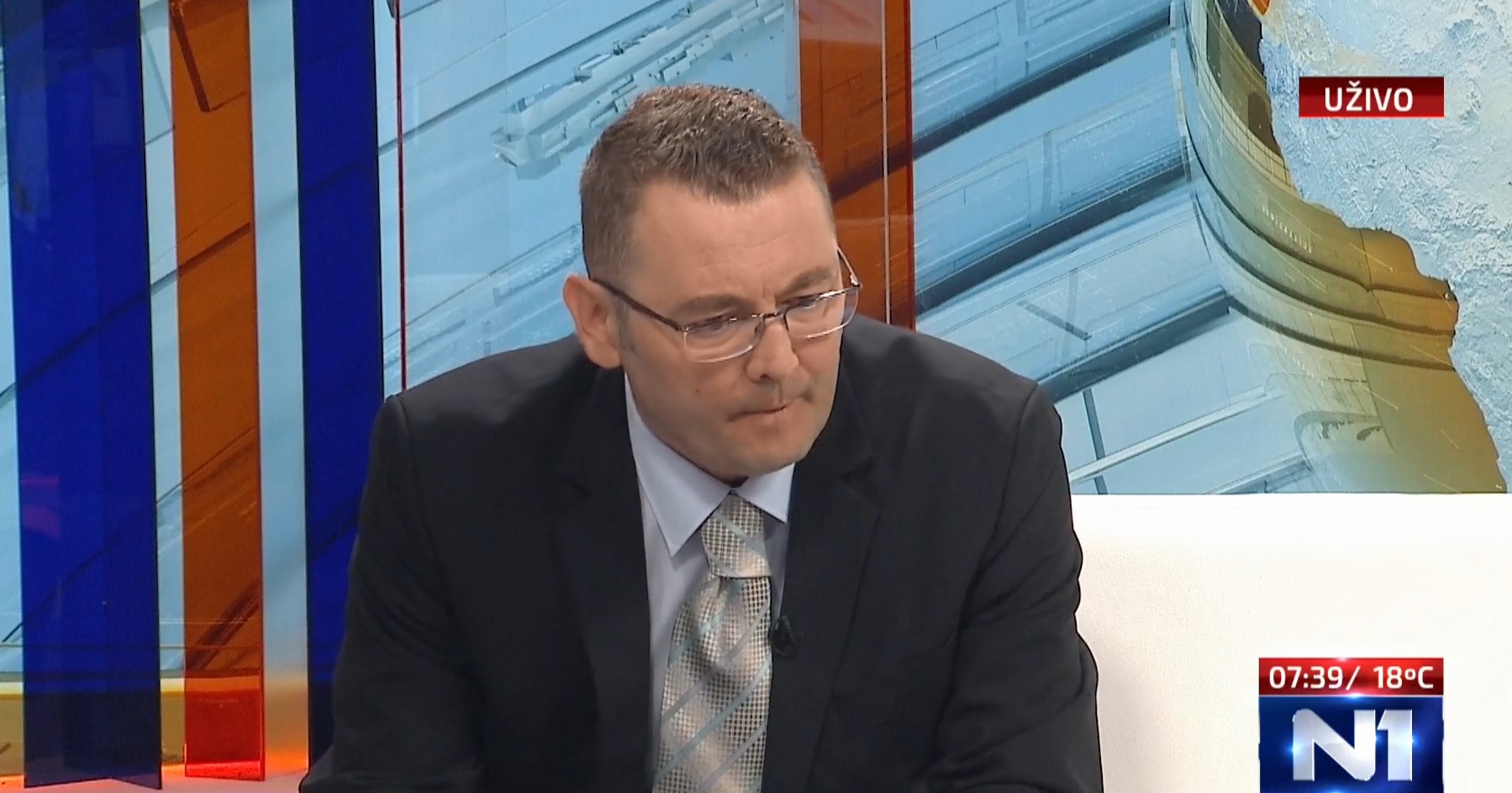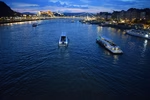'No consensus of Bosnia's institutions on Peljesac bridge'

Bosnia and Herzegovina's Parliament and the Council of Ministers have not demonstrated a joint stance regarding the controversial Peljesac bridge construction, while the state Presidency did not even mention the issue in its recently adopted foreign policy strategy, said the Secretary of the Transport and Communications Minister Igor Pejic.
Oglas
Speaking for N1 about the Peljesac bridge construction, which officially starts on Monday, Pejic said there was no consensus in the state institutions on this matter.
Some of Bosnia's state officials strongly objected the bridge construction, claiming that this project would disturb Bosnia's access to international waters. In their reaction, they referred to the Bosnia's Presidency decision from 2007, demanding from Croatia to halt the project until the issue of identification of the maritime boundary line and the country's access to the international waters is solved.
“We, as the Transport and Communications Ministry of Bosnia and Herzegovina, never received any conclusions which would oblige us to act. At our initiative, we asked the Republic of Croatia on several occasion to solve the issue of access to the sea,” Pejic explained, adding that this topic was raised at the last months meeting with the European Commissioner for Transport Violeta Bulc.
Oglas
According to him, Commissioner Bulc expressed huge support to the ministry's initiative and will be at a meeting with representatives of Bosnia and Croatia, which will discuss the open issues including the access to the sea. The meeting is likely to take place in Brussels in September or October.
Work to build the Peljesac bridge began in 2007. The road link aims at ensuring the territorial continuity of Croatia by connecting its mainland with the Dubrovnik-Neretva County while avoiding crossing Bosnia and Herzegovina at the Neum Corridor.
By connecting the Croatian peninsula of Peljesac with the mainland, the bridge would span a part of the Adriatic Sea which separates the two near the Bay of Mali Ston and the Neretva Channel.
Amid political controversies with the neighbouring Bosnia and Herzegovina as well as financial difficulties, construction was stopped in 2012 but Croatia signed a contract with a Chinese consortium earlier this year, announcing the start of construction works in mid-July.
Oglas
Pejic further said the bridge construction should be observed from two points of view, the one concerning the technical features of the bridge and another one concerning the sea boundary lines.
“In all documents from ten years and more I haven't noticed anyone problematising the technical features of the bridge. It is solely about the stances clearly mentioned by the Presidency of Bosnia and Herzegovina, which gives guidelines for foreign policy. The only thing being mentioned is determining the sea boundary line,” stressed Pejic, adding that this does not fall under the jurisdiction of the Transport and Communications Ministry.
Kakvo je tvoje mišljenje o ovome?
Učestvuj u diskusiji ili pročitaj komentare
Oglas
Kakvo je tvoje mišljenje o ovome?
Učestvuj u diskusiji ili pročitaj komentare
Oglas
NAJČITANIJE
Oglas
Oglas
Najnovije
Oglas
Oglas





 Srbija
Srbija
 Hrvatska
Hrvatska
 Slovenija
Slovenija



























































